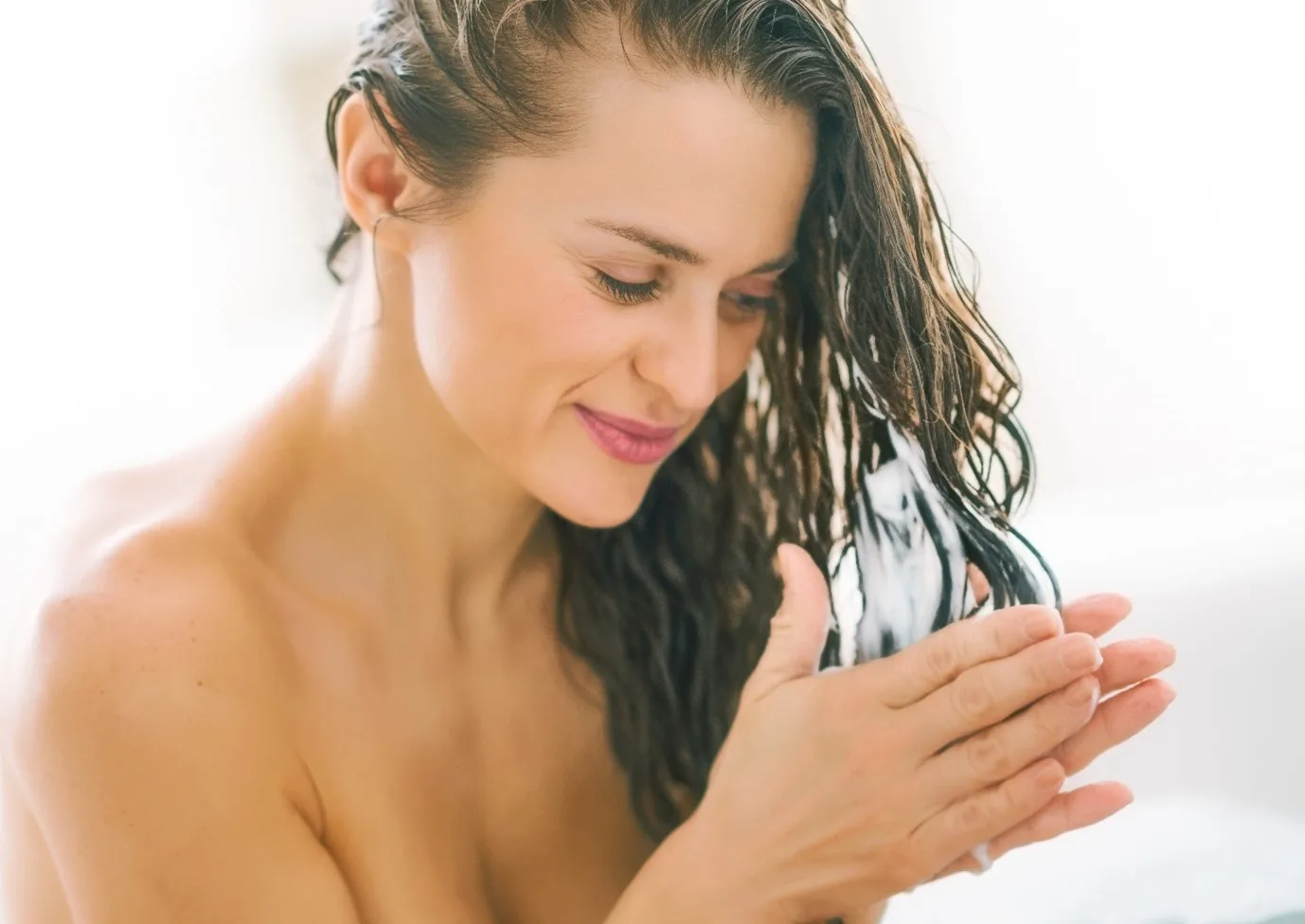IS CO-WASH EFFECTIVE?

Instead of using shampoos to keep your hair and scalp clean, can you use a conditioner?
Co-wash has become a new method to keeping your head clean. The co wash meaning is the use of conditioners to wash your hair and scalp, in the hopes of doing exactly what a shampoo does.
The logic dictates that shampoos can remove the natural oils and moisture from your hair, leaving it extremely dry and damaged. So people with curly, textured or dry hair could possible use co-wash to keep their head clean and nourished.
Conditioners are moisturising agents that are created with the intention of bringing back the hair moisture that is lost due to the use of shampoos. It makes your hair softer and easier to manage. But these are generally used along with shampoos, so the efficacy of a cowash is something to question.
Benefits and method of co washing
Co washing hair could be an effective route, due to the trace amounts of surfactants found in a conditioner. These are cleansing ingredients used to lift the dirt and oils from your head, lending credibility to the use of co-wash for hair care. It is important to understand that the co-wash meaning isn’t to use any random conditioners, it’s about selecting cleansing conditioners that are meant for this very purpose.
Co washing hair can be particularly beneficial for coloured hair, as they tend to dry out much faster. Using a conditioner can restore the moisture levels and prevent damage. It can significantly reduce breakage and shedding of your hair strands, as conditioners can strengthen the hair follicles. When it comes to textured or curly hair, co-wash can untangle your strands, get rid of knots, and eliminate any split ends.
If you intend on co washing hair, you should avoid conditioners with silicones or heavy oils. These can create a thick coat on your hair and drag them down, adding to your scalp build-up. Select conditioners that have humectants for hydration and proteins that protect your hair shaft with a thin coating layer. Soak your hair in water and apply a generous amount of conditioner to your hair and scalp. It is important to massage it into the scalp for a slightly longer period, as you need to dislodge the grime and dirt present on the surface. You can’t approach it as a regular conditioner. Leave it in for a few minutes and rinse thoroughly. Ensure that nothing is left behind on your hair or scalp while rinsing.
The frizzier or curlier your hair, the longer you can leave the conditioner in. Co washing hair should be done only 2 to 3 times a week and should be mixed with a shampoo once in a while. Ensure that you’re not using too many hair products in the week, as this becomes harder for co-wash to get rid of.
Any issues with co-wash?
Conditioners weren’t really built for cleaning your scalp and hair. They were designed to hydrate and bring a shine to your hair strands. Some conditioners should not even be applied directly to your scalp, where all the dirt generally lies. Using these conditioners on your scalp can lead to a larger build-up and possible inflammation.
If you have an oily scalp, thin hair, dandruff, or dermatitis, it is not recommended to use the co-wash method. Especially with dandruff, which is caused by a fungus that feeds on excess oil found on your scalp. Applying conditioners to an oily scalp can increase the oil build-up on your head and possibly be the cause of dandruff getting aggravated. The itching, redness and flaking will make you search high and low on how to remove dandruff from your scalp.
Even if you use cleansing conditioners for co washing hair, it is recommended that you use clarifying shampoos occasionally. These are hair and scalp shampoos with heavy surfactants that get rid of any excess oil, build-up, or dirt from your head. You should be careful with clarifying shampoos, as frequent use can lead to other issues.
Shampoos were made specifically for the purpose of clearing sweat, dead-skin cells, dirt, pollutants, oil, and hair products from your head. They exist because they work. Co-wash is effective only to a certain extent, and you will need a shampoo every now and then.
What else can you do?
If you want to experiment with co-wash for your dry hair, you should. But there are other ways to get the same effects for your hair.
Aloe Vera is a natural conditioner that brings back hydration to your scalp and clears up any oil build-up. It can even cool down your scalp and soothe any itching. Argan oil is an essential oil that works in a similar manner to calm the itching that comes with any scalp infection. It has shown to boost the moisture levels and create a protective layer on your hair strand. These two can also work as dandruff home remedies.
Shampoos are your next best bet. The problem with a shampoo arises when people over-wash their hair. If you wash your hair too often, it strips your hair strand and scalp of the natural protective oils. This leaves your hair dry and prone to harm. To maintain a healthy hair regimen, it is recommended that you use a shampoo to clean your head and then a conditioner to hydrate it. Try the Head and Shoulders Silky Black shampoo and the Head and Shoulders Supreme Scalp Rejuvenation conditioner with Argan oil.
You can also make use of the combined effect of a shampoo and conditioner, in the form of the Head and Shoulders 2 in 1 Smooth and Silky or the Head and Shoulders 2 in 1 Cool Menthol. Using these gentle products will clean your scalp of any dandruff causing germs and soften your hair at the same time. These are ideal to counter any negative effects that might stem from the use of the co-wash method.



